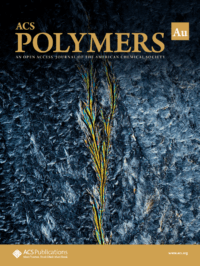Get to know Professor Perrier as he discusses his vision for the journal, what makes for a strong manuscript, and the importance of open access publishing.

ACS Publications is excited to announce Professor Sébastien Perrier, the Monash-Warwick Alliance Chair in Polymer Chemistry at the University of Warwick, UK and Monash University, Australia, as the new Deputy Editor of ACS Polymers Au. In this interview, he shares his vision for the journal, his passion for research, and his thoughts on how young researchers might approach their research.
What does it mean to you to be the Deputy Editor of ACS Polymers Au?
It means that I inherit a great journal which had a highly successful start in life, thanks to all the hard work of the previous editorial team, Prof. Arthi Jayaraman and Prof. Harm-Anton Klok. The bar is high, but I am looking forward to continuing ACS Polymers Au as a great communication vector to serve the polymer community.
The journal is fully open access. How important is this for you?
I think publishing open access is a critical aspect of modern research. Beyond the expectations of research funders, who want to see the outcome of funded research available to all, open access also means that there is no barrier between scientists accessing each other’s work. In a world where multidisciplinary and interdisciplinary research are key, enabling research findings to be accessible by all is a huge benefit. It is also a critical aspect in research training—publishing open access means that anybody can access all the information they need to support their learning.
What is your vision for ACS Polymers Au?
ACS Polymers Au was created to support polymer scientists who are required by their funder to publish in a fully open access journal. Beyond the authors, I would also like to think about the readers: open access means that articles are accessible to all. It is therefore a great vector to pass information, from scientific discoveries to critical reviews to ‘technical user guides.’ Polymer science is highly multidisciplinary, and ACS Polymers Au is a very effective and wide-ranging communication tool, which is fantastic for information sharing and for training.
Why should researchers working in the field consider submitting their next best manuscript to ACS Polymers Au?
Aside of the usual quality provided by ACS publications, having their work published open access guarantees them a broad readership as their article will be accessed for free, so literally anybody can read it!
What are you looking for in papers you receive?
Two simple things: quality and quality. High quality research, presented in a high-quality report. These are the most important criteria.
What excites you about your current research?
I trained as a synthetic polymer chemist and I am now working on materials, for which applications range from automotives, to personal care, to medicine. My team includes chemists, engineers, pharmacists, biologists, etc. I love the interdisciplinarity of our work!
What element has been most central to your scientific career, and why?
Ignorance! As an academic scientist, we should never be afraid to admit that we don’t understand something. Scientific research is so interdisciplinary now that if we acknowledge our ignorance in specific areas, we will learn and progress. I have no issue with telling people I don’t understand and need more explanation. Humility is also important in academic life: we get criticized so often, and most of the time via anonymous sources (think article reviews, grant refereeing, etc.) that we must be able to take criticism. I have learnt to extract what I can learn from the negatives and use it to improve. This has helped me a lot to navigate my academic scientific career.
What advice would you give to young researchers in the field today?
Choose your challenge and be multidisciplinary! There are some great challenges ahead of us, and we have the tools to address them. Decide what big issue (or which small part of a big issue) you will tackle. And don’t stick to your own discipline. Nowadays, scientists must speak more than one scientific language - maybe not fluently, but enough to be able to talk to each other. For instance, if your field is in biomaterials, don’t just be a polymer person. Learn about the biological functions of your materials, how they are made, how they are characterized, and their physical properties. Both your research and you as a person will grow.
